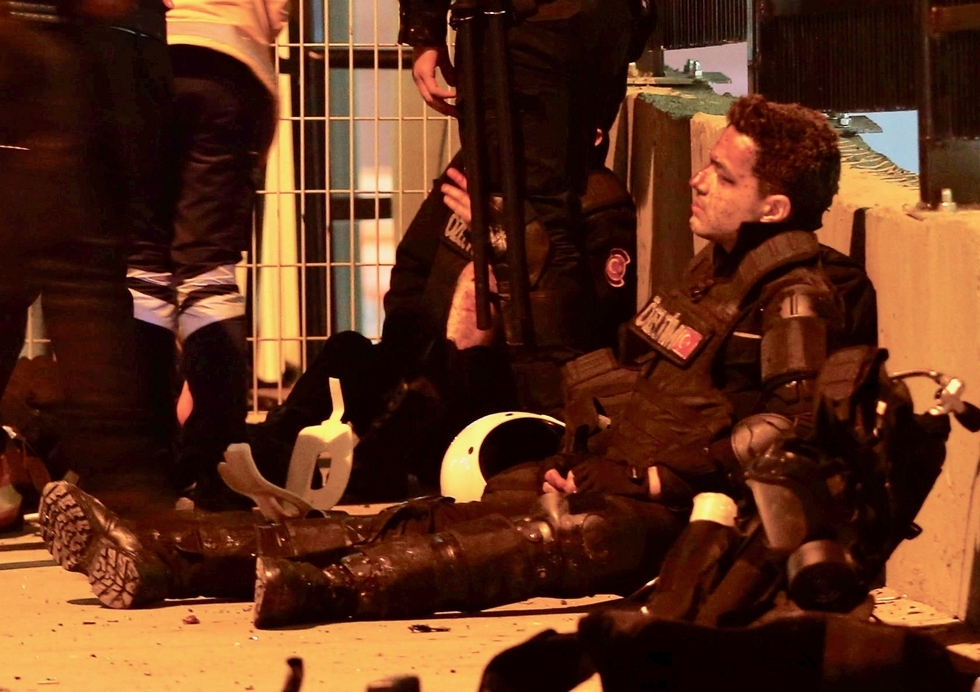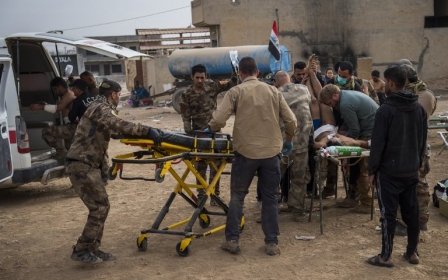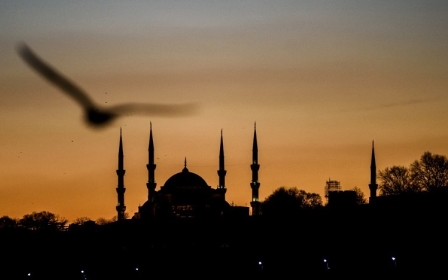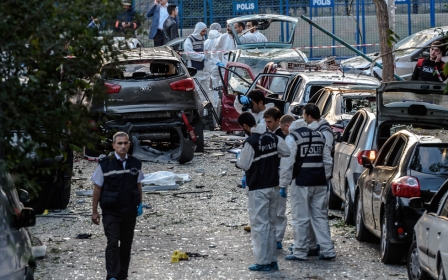Kurdish militants claim responsibility for Istanbul bombings that killed 38

Thirty-eight people, mostly police, were killed and 166 wounded in Istanbul on Saturday when twin bombings struck the heart of the city close to the stadium of top-flight football giants Besiktas after a major game.
A car bomb detonated outside the Vodafone Arena football stadium on the shores of the Bosphorus after the Super Lig match between Besiktas and Bursaspor. Less than a minute later, a suicide attacker struck a nearby park, officials said.
Turkish flags flew at half-mast in both cities on Sunday, as the prime minister's office declared a national day of mourning.
READ MORE: Why the PKK has turned to urban terrorism
The Kurdistan Freedom Falcons (TAK), a splinter group from the Kurdistan Workers Party (PKK), claimed responsibility for the attack on Sunday.
Turkey's interior minister said 13 people had been detained in relation to the attacks.
He said 30 police officers were among the dead and 14 people were in intensive care.
The initial blast was followed 45 seconds later by another attack at nearby Macka Park, carried out by a suicide bomber who blew himself up in the midst of police officers.
"An act of terror targeted our security forces and citizens at Besiktas tonight," President Recep Tayyip Erdogan said in a statement.
Erdogan said the blasts shortly after the end of the match sought to cause maximum loss of life.
"We have witnessed once more here in Istanbul the ugly face of terror which tramples down any form of value and morals," he said.
Omer Yilmaz, who was close to the scene of the blasts, said: "It was like hell. The flames went all the way up to the sky." Yilmaz, works as a cleaner at the nearby Dolmabahce mosque, directly across the road from the stadium. "I was drinking tea at the cafe next to the mosque.
"People ducked under the tables, women began crying. Football fans drinking tea at the cafe sought shelter, it was horrible," he told Reuters.
State broadcaster TRT showed images of the wreckage of a car engulfed in flames, with emergency services swarming around the scene outside the sports venue.
Other footage showed severely damaged police vehicles, while witnesses said the force of the blast had shattered the windows of several nearby homes.
"I heard two explosions in less than one minute, followed by the sound of gunshots," one witness told AFP on condition of anonymity.
Besiktas is one of Istanbul's most popular football clubs, and its fans are known for their anti-establishment views and famously played a big role in the 2013 protests against Erdogan, who was then prime minister.
The club said that among those killed was Vefa Karakurdu, a senior police officer in charge of security at games and who was a member of its congress, and Tunc Uncu, who worked at the club's official merchandise shop.
Besiktas in a statement vowed to "stand firm against the vile attackers who will never achieve their goal".
Police cordoned off the area around the stadium immediately after the blasts, which occurred near the Ottoman-era Dolmabahce palace, which houses Prime Minister Binali Yildirim's offices in Istanbul.
The scene is also about a kilometre from the busy Taksim Square, a magnet for tourists.
Erdogan was in Istanbul at the time of the blast, at his residence in the suburb of Tarabya further down the Bosphorus, state media said.
The government slapped a broadcast ban on footage of the attack, as is becoming typical in the aftermath of major incidents in the country.
In his statement, Erdogan said that "the name or the method of the terrorist organisation which perpetrated the vile attack" did not matter.
"Nobody should doubt that we will defeat terror, terror groups, terrorists and of course the forces behind them, with God's help," he said.
In June, 47 people were killed in a triple suicide bombing and gun attack at Istanbul's Ataturk airport, with authorities blaming the Islamic State (IS) group.
Another 57 people, 34 of them children, were killed in August in a suicide attack by an IS-linked bomber at a Kurdish wedding in the southeastern city of Gaziantep.
There have also been deadly bombings claimed by the Kurdistan Freedom Falcons, seen as a splinter group of the PKK.
The US Embassy in Turkey condemned the latest attacks. "Our hearts and prayers are with the people of #Istanbul tonight," the embassy wrote on Twitter.
Turkey is still reeling from a failed 15 July coup blamed by the government on the US-based Islamic preacher Fethullah Gulen that has been followed by a relentless purge of his alleged supporters from state institutions.
Saturday's attack came after the Turkish army and its Syrian rebel allies on Saturday entered the IS bastion of Al-Bab in northern Syria, according to a monitoring group.
Al-Bab is the last bastion IS has in Syria's northern Aleppo province.
The explosions also came hours after Turkey's ruling party submitted a parliamentary bill that would expand the powers - and possibly the tenure - of Erdogan, a move his opponents fear will lead to one-man rule.
New MEE newsletter: Jerusalem Dispatch
Sign up to get the latest insights and analysis on Israel-Palestine, alongside Turkey Unpacked and other MEE newsletters
Middle East Eye delivers independent and unrivalled coverage and analysis of the Middle East, North Africa and beyond. To learn more about republishing this content and the associated fees, please fill out this form. More about MEE can be found here.




